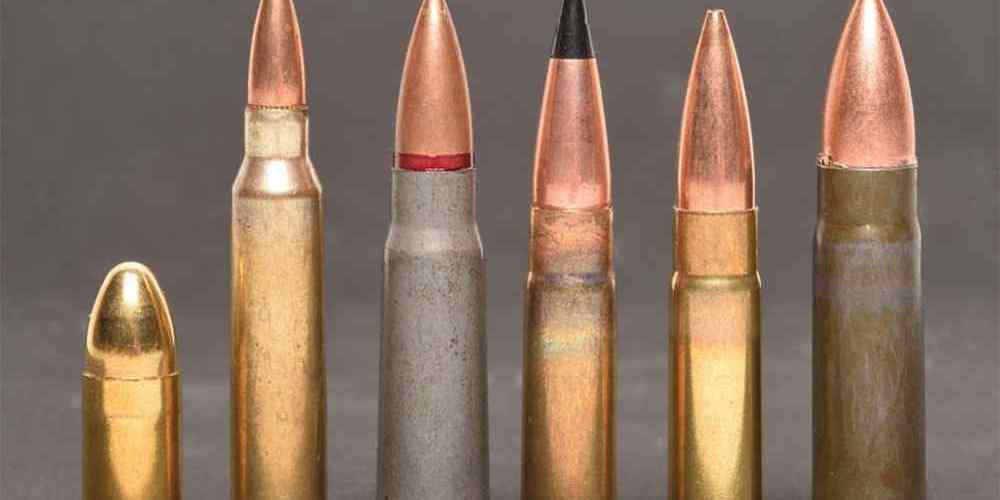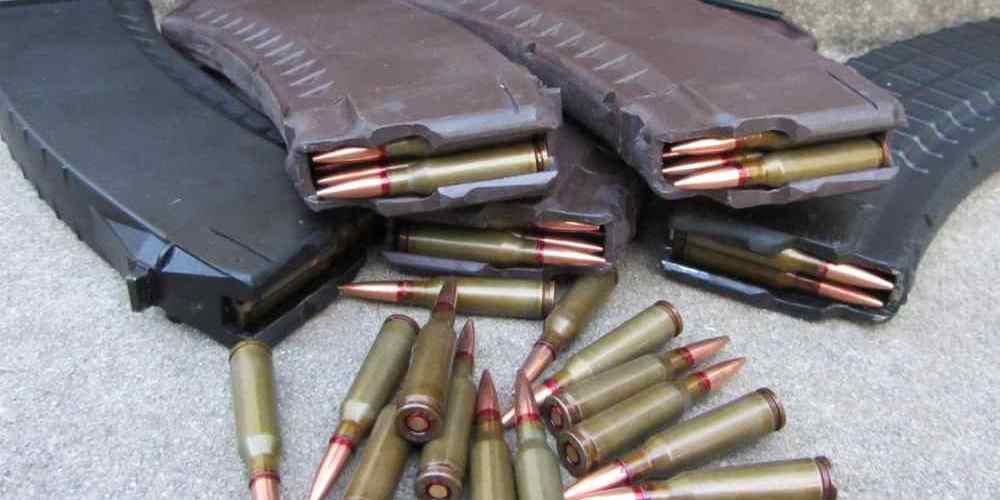Enhance your AR15’s performance with a suppressor.
Accuracy
The AR15 is a popular rifle among gun enthusiasts for its versatility and accuracy. One factor that can greatly affect the performance of the AR15 is the use of a suppressor. Suppressors are devices that attach to the end of the rifle barrel and reduce the noise and recoil of the gun when fired. While suppressors are commonly used for reducing noise levels, they can also have an impact on the accuracy of the rifle.
When a suppressor is attached to an AR15, it can change the way the rifle performs in terms of accuracy. One of the main ways that a suppressor can affect accuracy is by changing the harmonics of the rifle. The added weight and length of the suppressor can alter the way the barrel vibrates when a shot is fired, which can in turn affect the trajectory of the bullet.
Additionally, the gas system of the AR15 can also be affected by the use of a suppressor. The increased back pressure caused by the suppressor can lead to changes in the way the gas system operates, which can impact the cycling of the rifle and ultimately affect accuracy. It is important to note that not all suppressors will have the same impact on accuracy, as factors such as the design of the suppressor and the type of ammunition being used can also play a role.
Despite these potential changes in accuracy, many shooters find that using a suppressor can actually improve their shooting performance. The reduction in noise and recoil provided by a suppressor can help shooters maintain better control of their rifle, leading to more consistent and accurate shots. Additionally, the reduced muzzle blast can help to minimize distractions and improve focus, which can also contribute to improved accuracy.
It is important for shooters to experiment with different suppressors and ammunition types to find the combination that works best for their specific needs. Some suppressors may have a minimal impact on accuracy, while others may require adjustments to shooting technique or equipment to maintain consistent performance. Shooters should also consider factors such as barrel length, twist rate, and bullet weight when using a suppressor, as these can all affect the overall performance of the rifle.
In conclusion, the use of a suppressor can have both positive and negative effects on the accuracy of an AR15. While suppressors can change the harmonics of the rifle and impact the gas system, they can also provide benefits such as reduced noise and recoil that can lead to improved shooting performance. Shooters should carefully consider their specific needs and preferences when using a suppressor with an AR15, and be willing to experiment with different setups to find the combination that works best for them. Ultimately, with the right setup and practice, shooters can achieve excellent accuracy with an AR15 even when using a suppressor.
Velocity
When it comes to shooting with an AR15, there are many factors that can affect the performance of the ammunition. One such factor is the use of suppressors. Suppressors, also known as silencers, are devices that attach to the end of a firearm barrel to reduce the noise and muzzle flash produced when the gun is fired. While suppressors are commonly used for reducing noise levels, they can also have an impact on the velocity of the ammunition being fired.
When a suppressor is attached to an AR15, it can affect the velocity of the ammunition in a few different ways. One of the main ways that suppressors can impact velocity is by increasing the back pressure within the barrel. When a suppressor is attached to the end of the barrel, it creates a closed system that traps the gases produced when the gun is fired. This increased back pressure can cause the bullet to be pushed out of the barrel at a higher velocity than it would be without the suppressor.

Another way that suppressors can affect velocity is by changing the way that the gases behind the bullet are released. When a gun is fired without a suppressor, the gases behind the bullet are able to escape freely from the barrel. However, when a suppressor is attached, the gases are trapped within the suppressor and are released more slowly. This can cause the bullet to be pushed out of the barrel at a slower velocity than it would be without the suppressor.
In addition to affecting velocity, suppressors can also have an impact on the accuracy of the ammunition being fired. When a suppressor is attached to an AR15, it can change the way that the gun recoils after firing. This change in recoil can affect the way that the gun is held and aimed, which can in turn impact the accuracy of the shot.
Overall, the use of suppressors with an AR15 can have a significant impact on the performance of the ammunition being fired. While suppressors can increase the velocity of the bullet by increasing back pressure within the barrel, they can also decrease velocity by trapping gases behind the bullet. Additionally, suppressors can affect the accuracy of the shot by changing the way that the gun recoils after firing.
In conclusion, when using a suppressor with an AR15, it is important to consider how it will impact the performance of the ammunition being fired. By understanding the ways in which suppressors can affect velocity and accuracy, shooters can make informed decisions about when and how to use suppressors with their AR15. Ultimately, the choice to use a suppressor will depend on the specific needs and preferences of the shooter, but it is important to be aware of the potential impact on ammunition performance.
Recoil
The AR15 is a popular rifle among gun enthusiasts for its versatility and performance. One factor that can greatly impact the performance of the AR15 is the use of a suppressor. Suppressors are devices that attach to the end of a firearm to reduce the noise and muzzle flash produced when firing a round. While suppressors are commonly used to reduce noise, they can also have an impact on the performance of the ammunition being used.
When a suppressor is attached to an AR15, it can affect the recoil of the rifle. Recoil is the backward movement of the rifle that occurs when a round is fired. Suppressors can help reduce recoil by redirecting the gases produced when firing a round. This redirection of gases can help to mitigate the force that pushes the rifle backward, resulting in less felt recoil for the shooter.
In addition to reducing recoil, suppressors can also have an impact on the accuracy of the AR15. Suppressors can help to stabilize the rifle by reducing muzzle rise, which is the upward movement of the barrel when firing a round. By reducing muzzle rise, suppressors can help to improve the overall accuracy of the rifle, allowing shooters to achieve more precise shots.
Another factor that can be affected by the use of a suppressor is the velocity of the ammunition being used. Suppressors can increase the velocity of the ammunition by providing a longer barrel length for the gases to expand and propel the bullet forward. This increase in velocity can result in higher muzzle energy and improved terminal ballistics, making the ammunition more effective at longer ranges.
However, it is important to note that not all ammunition will perform the same when used with a suppressor. Some types of ammunition may experience a decrease in performance when used with a suppressor, while others may see an increase in performance. Factors such as bullet weight, powder charge, and bullet design can all impact how a round performs when used with a suppressor.
Overall, the use of a suppressor with an AR15 can have a significant impact on the performance of the ammunition being used. Suppressors can help to reduce recoil, improve accuracy, and increase velocity, making the rifle more effective in a variety of shooting scenarios. However, it is important for shooters to test different types of ammunition with their suppressor to determine which performs best with their specific setup. By experimenting with different types of ammunition, shooters can optimize the performance of their AR15 when using a suppressor.
Sound suppression
The AR15 is a popular firearm known for its versatility and performance. One aspect of the AR15 that many gun enthusiasts are interested in is how its performance changes when using a suppressor. Suppressors, also known as silencers, are devices that reduce the noise and muzzle flash produced by a firearm when it is fired. While suppressors are commonly used to reduce noise levels, they can also have an impact on the performance of the ammunition being used.
When a suppressor is attached to an AR15, it can affect the velocity and accuracy of the ammunition being fired. The added weight and length of the suppressor can cause a slight decrease in velocity, which can impact the trajectory of the bullet. This decrease in velocity can also affect the energy and stopping power of the ammunition. However, some shooters may find that the reduced noise and recoil produced by the suppressor outweigh the slight decrease in velocity.
In addition to velocity, suppressors can also have an impact on the accuracy of the ammunition being used. The added weight of the suppressor can affect the balance of the firearm, which can in turn affect the shooter’s ability to aim accurately. However, some shooters may find that the reduced recoil and muzzle rise produced by the suppressor actually improve their accuracy.
Another factor to consider when using a suppressor with an AR15 is the type of ammunition being used. Different types of ammunition can perform differently when used with a suppressor. For example, subsonic ammunition is designed to produce less noise when fired, making it a popular choice for use with suppressors. However, subsonic ammunition typically has a lower velocity and energy compared to standard ammunition, which can affect its performance.
It is important for shooters to test different types of ammunition with their suppressor to determine which performs best with their AR15. Some shooters may find that certain types of ammunition produce better results in terms of velocity, accuracy, and overall performance when used with a suppressor. Experimenting with different types of ammunition can help shooters find the best combination for their specific needs and preferences.
Overall, using a suppressor with an AR15 can have both positive and negative effects on the performance of the ammunition being used. While suppressors can reduce noise levels and recoil, they can also affect velocity, accuracy, and energy. Shooters should carefully consider these factors when deciding whether to use a suppressor with their AR15 and experiment with different types of ammunition to find the best combination for their needs. Ultimately, the decision to use a suppressor with an AR15 will depend on the shooter’s preferences and priorities when it comes to performance and sound suppression.
Reliability
When it comes to using a suppressor with an AR15, one of the key factors to consider is how it will affect the performance of the ammunition. Suppressors are popular among gun enthusiasts for reducing noise and recoil, but they can also have an impact on the reliability of the firearm. Understanding how suppressors affect AR15 ammo performance is crucial for ensuring a smooth shooting experience.
One of the main ways that suppressors can affect AR15 ammo performance is by increasing back pressure. When a suppressor is attached to the end of the barrel, it creates a closed environment that can cause gases to build up and increase pressure within the barrel. This increased pressure can lead to a variety of issues, including malfunctions and failures to cycle properly.
To combat this issue, it is important to select the right ammunition for use with a suppressor. Some types of ammunition are better suited for use with suppressors than others. For example, subsonic ammunition is designed to be quieter and produce less recoil, making it a good choice for use with a suppressor. Additionally, using higher quality ammunition can help to reduce the likelihood of malfunctions when using a suppressor.
Another factor to consider when using a suppressor with an AR15 is the type of gas system that is used in the firearm. Different gas systems operate in different ways and can have varying levels of reliability when used with a suppressor. For example, a direct impingement gas system may be more prone to malfunctions when used with a suppressor, while a piston-driven system may be more reliable.
In addition to selecting the right ammunition and gas system, it is also important to properly maintain and clean the suppressor. Over time, carbon buildup can accumulate within the suppressor, which can affect its performance and reliability. Regular cleaning and maintenance can help to prevent issues and ensure that the suppressor continues to function properly.
Overall, using a suppressor with an AR15 can have a significant impact on the performance of the ammunition. By selecting the right ammunition, gas system, and properly maintaining the suppressor, shooters can help to ensure a reliable shooting experience. It is important to experiment with different combinations of ammunition and gas systems to find the best setup for your specific needs and preferences.
In conclusion, understanding how suppressors affect AR15 ammo performance is crucial for shooters who are considering using a suppressor with their firearm. By selecting the right ammunition, gas system, and properly maintaining the suppressor, shooters can help to ensure a reliable shooting experience. Experimenting with different setups and seeking advice from experienced shooters can also help to optimize the performance of an AR15 when using a suppressor.




